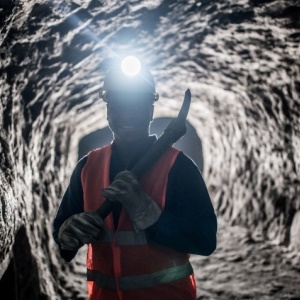South Africa’s mining industry is in for a tough time if the new proposed Mining Charter (Mining Charter III) is any indication of the direction of mining policy, the Institute of Race Relations (IRR) said on Tuesday.
“Despite some improvements over the version produced to widespread dismay in 2017, [Mining Charter III] does not provide a framework for a competitive and sustainable industry,” the IRR said in a statement.
“The framework the draft charter creates will inevitably hold the mining industry back. The upshot will be a missed opportunity, as South Africa sits atop a multi-trillion rand mineral endowment, but is unable fully to utilise it owing to poorly conceived policy.”
The IRR said the country’s mining industry has a crucial role to play in leading economic growth. For the industry to play such a role, an environment is needed which makes investment attractive.
“The draft charter does little to create this environment,” said the IRR.
Minister of Mineral Resources Gwede Mantashe gazetted the draft Mining Charter on Friday. Members of the public have 30 days from the date of publication to submit comments.
On Sunday Mantashe said an upcoming mining summit in early July would help "sharpen" the charter, but likely not result in massive changes.
Free carry concerns
Of concern to the institute is the charter's proposed requirement that companies seeking new mining rights must cede 5% “free carry” to their employees and to communities.
Citing mining expert Peter Leon, the IRR said such a requirement would likely render marginal mining projects uneconomic for shareholders.
The draft Mining Charter III also proposes that, if the holder of a new mining right fails to pay dividends for five years, it must thereafter provide “trickle down” dividends to employees and communities. This must be calculated as 1% of EBITDA, or earnings before interest, tax, depreciation and amortisation.
The IRR cautioned that this proposed requirement will also likely add to the cost of conducting business. It added that paying such dividends to certain shareholders and not to others may contravene the Companies Act.
The IRR also pointed to what it termed “weighty demands” Mining Charter III would impose on mining companies to procure locally.
According to the charter, about 70% of capital and other mining goods must be purchased from South African manufacturers, while 80% of the services mines require must be supplied by local companies.
“It is not clear whether such companies already exist sufficient to the industry’s demands and ‘establishing’ them may prove an additional cost,” the IRR pointed out.
It added that limiting foreign procurement may be contrary to South Africa's binding obligations under the World Trade Organisation's General Agreement on Tariffs and Trade.
Mining Charter III also proposes that foreign suppliers – from whom 30% of mining goods and 20% of services may be purchased - must contribute 0.5% of their annual turnover from their local mining companies to the Mandela Mining Precinct for research.
The IRR believes this 0.5% levy is in truth a tax, which the mining minister has no authority to impose as only Parliament can do so.
“Taken together, these measures impose burdens on the mining industry that largely overshadow the relief granted by the charter’s recognition of empowerment deals that reached the 26% target before BEE beneficiaries sold out,” said the IRR.
Mantashe, meanwhile, has argued that the new charter would ensure that mineworkers and mining communities reap the benefits of mining companies' operations, while shielding companies from unnecessary volatility.
* Sign up to Fin24's top news in your inbox: SUBSCRIBE TO FIN24 NEWSLETTER
Follow Fin24 on Twitter, Facebook, Google+ and Pinterest. 24.com encourages commentary submitted via MyNews24. Contributions of 200 words or more will be considered for publication.





















